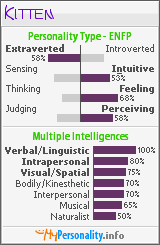 A year and a half ago, I had read Malcolm Gladwell's first book, The Tipping Point, and really admired his thinking processes. I had started to read Blink, but due to some difficult circumstances going on at the time, never finished it. (But I fully intend to pick it up again).
A year and a half ago, I had read Malcolm Gladwell's first book, The Tipping Point, and really admired his thinking processes. I had started to read Blink, but due to some difficult circumstances going on at the time, never finished it. (But I fully intend to pick it up again).When his third book, Outliers, came out, I decided to wait to read it, and couldn't wait any longer. This is his best book yet.
On the front flap of the book's dust jacket, an "outlier", according to Gladwell, is a person "whose achievements fall outside normal experience." Bill Gates and the Beatles are considered to be outliers, but so are Silicon Valley billionaires as well as top New York lawyers. All of these groups are profiled in this book.
Outliers argues that success has little, if anything, to due with hard work, intelligence, or ambition. Gladwell insists that success is the result of the environment in which one is raised, cultural legacy, even the year and month of one's birth. In other words, success depends largely on chance.
Take Bill Gates, for instance. In the seventh grade his parents enrolled him in a private school in Seattle. During his second year, the school purchased a computer that had a direct link to a mainframe in downtown Seattle. The computer was an ASR-33, considered to be a state-of-the-art piece of equipment for its time--the year 1968. (p. 51)
Long story short, Gates eventually started spending time programming at the computer center at the University of Washington. He would program anywhere between twenty and thirty hours a week, including weekends. (p. 52)
Gates, Gladwell argues, had an opportunity to develop computer programming skills at an early age, and especially at the time when the industry was just developing. These skills, and the amount of time he spent with computers, were what helped Gates when he founded Microsoft.
The Beatles are a similar success story. In 1960, a man named Bruno, who owned several nightclubs in Hamburg, Germany, saw the Beatles play in Liverpool and invited them to play at his clubs. Between 1960 and 1962, they made five trips to Hamburg. Gladwell writes about their experiences:
On their first trip, they played 106 nights, five or more hours a night. On their second trip, they played 92 times. On their third trip, they played 48 times, for a total of 172 hours on stage. The last two Hamburg gigs, in November and December of 1962, involved another 90 hours of performing. All told, they performed for 270 nights in just over a year and a half. By the time they had their first burst of success in 1964, they had performed an estimated twelve hundred times. Do you know how extraordinary that is? Most bands today don't perform twelve hundred times in their entire careers. The Hamburg crucible is one of the things that set the Beatles apart. (pp. 49-50)
The examples of Bill Gates and the Beatles illustrate another argument that Gladwell makes about success: according to some experts, in order to achieve true expertise in any given field, one must put in 10,000 hours of practice.
If that's true, then that's a loooonnngg road to Carnegie Hall--long, but worth it.
That's just one of the factors of success that Gladwell gives. There are many more, which I won't go into detail about here. I will say, however, that the chapters on cultural legacy, particularly the one about Asian achievements in math, are very, very interesting, perhaps the best portion of the entire book. He puts up some very valid arguments here.
What I have always liked about Malcolm Gladwell is that he takes very complex, abstract ideas and writes about them in very simple terms that everyone can understand. He doesn't dumb his ideas down, not by any means. He makes them very accessible.
This is the latest entry in my 2009 100+ Reading Challenge, my 2009 Read Your Own Books Challenge, and my 2009 Dewey Decimal Challenge. As always , click on the buttons in the right sidebar for all of the archived lists!


































4 comments:
I have been meaning to read "Blink". His latest book sounds really interesting.
i have heard such good things about this book! adding it to my list right now!
I really liked Outliers, too! I thought it was written well - he's got such a great voice. It doesn't feel like a dry, statistical nonfiction tome, it's more like the most interesting story someone ever told you about real life.
Thanks for concisely explaining to me what this book was about ... I really had no idea. It kind of made me want to read it.
Post a Comment